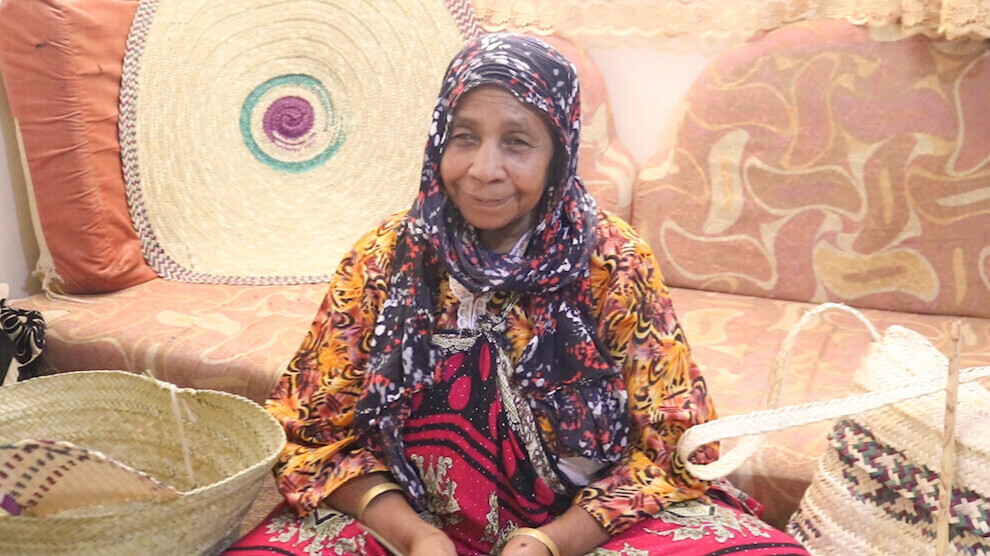Displaced woman of Tawergha makes crafts to support her family
Marja’ Faraj Ali Nasr, a displaced woman of Tawergha, makes and sells crafts from date palm leaves to support her family.

HINDIYA AL-ASHEPY
Benghazi- Undoubtedly that women and children are most affected by wars and conflicts. Displaced families living in the camps in Benghazi are not sent back to their homeland due to ever-changing policies of the government. Families looking for an alternative to the bad living conditions in the camps try to build a new life outside the camps. One of these families is the family of Marja’ Faraj Ali Nasr. After living in the camps of the city of Benghazi for more than six years, they decided to build a life outside the camps.
She lives in a small apartment in the town of Ajdabiya
77-year-old Marja’ Faraj Ali Nasr lives in a small apartment in the town of Ajdabiya with her family. Although the Libyan Government of National Accord (GNA) ratified an agreement that allows for the return of the displaced population of the city of Tawergha in 2017, the displaced people of Tawergha are prevented by armed militias from returning to their homes. Marja’ Faraj Ali Nasr spoke to NuJINHA about difficulties they faced in the camps.
Stating that they had a simple life with her children and husband before being displaced, Marja’ Faraj Ali Nasr said, “We used to work in a poultry project of the government and received about 500 Libyan dinars ($100) every month. At that time, this salary was not enough to meet the house expenses and the education costs of our children. My children used to work at night to improve our living conditions.”
She lost everything in Tawergha
Like all displaced families of Tawergha, Marja’ Faraj Ali Nasr’s family also lost their home and farming land after armed militias took control of the city. “I do not have anything in Tawergha now. My house was burnt down, my date palm trees were burnt. Everything my family had in Tawergha were destroyed,” she said.
After being forcibly displaced from Tawergha, families, particularly women, began to make crafts from date palm leaves to make a living. Marja’ Faraj Ali Nasr also began to make crafts to support her family. “In recent years, everything has become more expensive in Libya. I make crafts to earn money for my family. After cutting and drying palm fronds, I put them in water to maintain their flexibility and softness, to facilitate their formation in different shapes and sizes. Then, I make baskets to sell them.”
“All I want is peace in my country”
Speaking about the support of non-governmental organizations and state-affiliated institutions, she said, “They only give us blankets, furniture, kitchen utensils, and other tools and equipment that are used at home. All I want is peace in my country and a good life for my family.”
